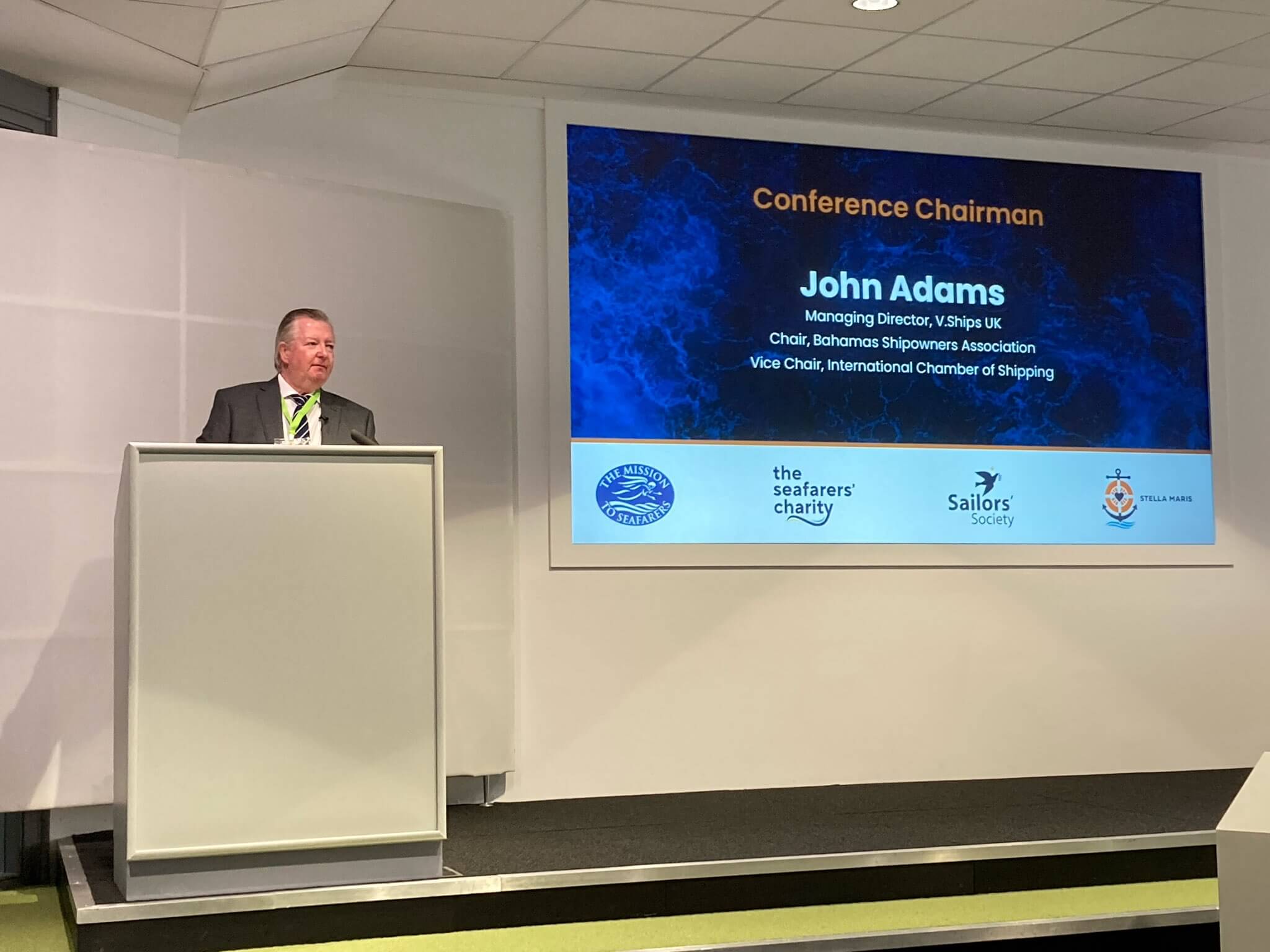Resources
A collection of free resources to help you raise funds and share the work we do

The conference was organised by the four LISW charities, The Mission to Seafarers, Stella Maris, The Seafarers’ Charity and Sailors’ Society, in partnership with conference hosts, Inmarsat.
This conference explored the welfare issues faced by seafarers during the pandemic, and whether the digital solutions put in place by the shipping industry were effective. It was chaired by John Adams, Managing Director, V. Ships UK, who set the scene for the discussions by highlighting the impact of the pandemic on welfare: “Issues such as fatigue, feelings of isolation and abandonment all existed pre-Covid. But now we can take each of these issues and magnify them by power of 10. What was urgent two years ago is beyond urgent today.”
Dr Grahaeme Henderson OBE, Chair of Together in Safety, raised the call for a united voice to ensure safety and wellbeing were provided as standard. “I believe when we work together we can make huge strides. I encourage you and your organisations to get involved on this special journey. For every ship, every company, crew member, and their family and children, we can be together in safety.”
250 participants joined virtually or in the room to listen and participate in the following sessions and speeches:
All speakers and panellists agreed that the pandemic has hugely exacerbated existing challenges that seafarers can face, including poor mental health, loneliness, fatigue and lack of shore leave. Connectivity was viewed an essential right to which seafarers should have access yet according to a study by Nautilus International, only 57% of seafarers have access to satellite phones and personal emails and only 6% have video calling facilities.
The four charities spoke of how they have adapted their services to the current need with digital initiatives such as The Mission to Seafarers’ Chat to a Chaplain, Sailors’ Society’s blended Wellness at Sea Awareness Campaign, Stella Maris and ISWAN’s work with the Isle of Man Ship Registry on the Crew Matters app, as well as making emergency funds available for example through the Seafarers’ International Relief Fund (SIRF).
All of the charities recognised that while there’s great value in digital support, it is vital that it runs alongside the more traditional and face-to-face welfare services, given the value placed by crew on meeting with chaplains and ship visitors in person. Nevertheless, there was no doubt that digital technology is one important way of ensuring that seafarers can access services, not just because it is the right thing to do, but because it also makes commercial sense to care for crews and their wider community, given the costs of accidents and ship diversions. It is time to be united for change and make a difference together.